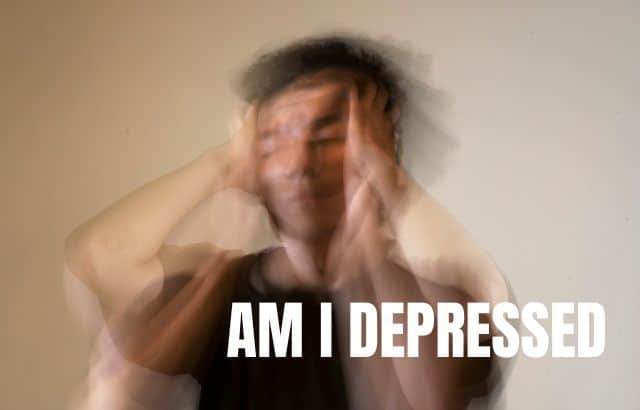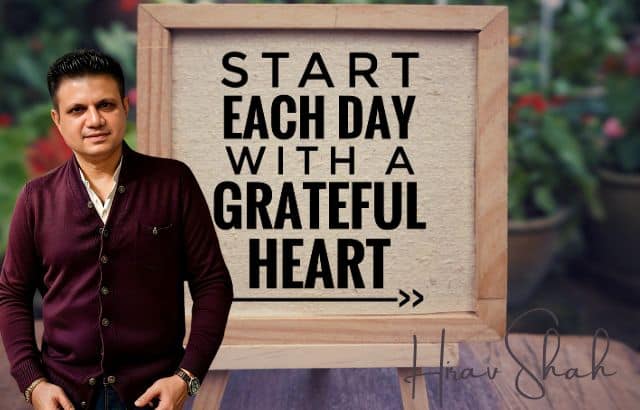Feeling down? Struggling to find joy in the things you once loved? It’s important to recognize the signs and know that you’re not alone. In this article, “Feeling Down? Uncover the Signs: Am I Depressed?”, we will explore the common indicators of depression and help you understand if what you’re experiencing is truly depression.
Depression is a mental health disorder that can have a profound impact on your day-to-day life, affecting your mood, thoughts, and overall well-being. While everyone experiences moments of sadness, depression is characterized by persistent feelings of hopelessness, loss of interest in activities, changes in appetite and sleep patterns, and difficulty concentrating.
Recognizing the signs of depression is the first step towards seeking help and finding support. Whether you’re concerned about yourself or a loved one, understanding the symptoms can lead to early intervention and improved outcomes. Remember, depression is treatable, and with the right guidance and support, you can regain control of your life. So, if you’re wondering, “Am I depressed?”, keep reading to uncover the signs and discover the path to a brighter future.
Imagine waking up to the warmth of the morning sun, birds chirping outside your window, and the promise of a brand new day. Yet, instead of embracing the possibilities ahead, you feel a heavy weight pressing down on your chest. It’s as if a dark cloud has settled over your entire being, suffocating any semblance of joy or motivation. You wonder, “Why am I depressed?”
In today’s world, where the pursuit of success and happiness often feels like an endless marathon, it’s not uncommon to find ourselves grappling with feelings of despair and hopelessness. But what if I told you there’s a way to break free from the shackles of depression and create an extraordinary life filled with purpose and fulfillment? Enter Hirav Shah.
Table of Contents
What is Depression?
- Depression is more than just feeling sad or blue; it’s a debilitating mental health condition that affects millions of people worldwide.
- According to the World Health Organization (WHO), over 264 million people suffer from depression globally, with rates steadily increasing over the years.
- But beyond the statistics lies a profound sense of despair and emptiness that can cripple even the strongest of souls.
What Causes Depression?
- Depression can be triggered by a multitude of factors, often categorized into loss, lack, and perpetual disappointment.
- Loss, whether it be the death of a loved one, the end of a relationship, or the loss of a job, can trigger profound feelings of grief and despair.
- Similarly, feelings of lack, such as financial struggles, social isolation, or unfulfilled aspirations, can contribute to a sense of hopelessness and worthlessness.
- Moreover, the Perpetual Cycle of Disappointment and unmet expectations can erode one’s sense of self-worth and purpose, fueling the downward spiral of depression.
Signs and Symptoms of Depression
Recognizing the signs and symptoms of depression is essential in determining whether what you’re experiencing is depression or simply a temporary state of sadness. While everyone may experience some of these symptoms from time to time, the key indicator of depression is their persistence and interference with daily functioning. Here are some common signs and symptoms to watch out for:
- Persistent sadness or feelings of emptiness: Feeling sad or empty most of the day, nearly every day, is a hallmark symptom of depression. These feelings may be accompanied by tearfulness, a sense of hopelessness, or a general lack of motivation.
- Loss of interest or pleasure in activities: Losing interest in activities you once enjoyed is a significant sign of depression. Hobbies, socializing, and even spending time with loved ones may no longer bring you joy or satisfaction.
- Changes in appetite and weight: Depression can affect your appetite, leading to significant changes in weight. Some individuals may experience an increase in appetite and weight gain, while others may have a decreased appetite and weight loss.
- Sleep disturbances: Insomnia or excessive sleeping can be indicative of depression. You may find it difficult to fall asleep, wake up frequently during the night, or experience early morning awakenings.
- Fatigue and lack of energy: Feeling constantly tired and lacking energy, even after a good night’s sleep, is a common symptom of depression. It can make even simple tasks feel overwhelming and exhausting.
- Difficulty concentrating and making decisions: Depression can impair your cognitive function, making it challenging to concentrate, remember things, or make decisions. This can impact your work or academic performance and hinder your ability to perform daily tasks.
- Feelings of guilt, worthlessness, or self-blame: Depressed individuals often experience negative thoughts about themselves and may have an exaggerated sense of guilt or worthlessness. They may blame themselves for their condition or believe they are a burden to others.
- Physical symptoms: Depression can manifest in various physical symptoms, such as headaches, digestive issues, body aches, and general physical discomfort. These physical symptoms often have no apparent medical cause.
It’s important to note that not everyone will experience all of these symptoms, and the severity of symptoms may vary from person to person. If you recognize several of these signs persisting for an extended period, it may be an indication that you are dealing with depression.
Hirav Shah’s Approach to Depression
- Unlike traditional approaches that focus solely on symptom management through medication and therapy,
- Hirav Shah advocates for a holistic approach to healing that addresses the root causes of depression.
- Drawing from his extensive experience as a life coach and mentor, Hirav emphasizes the importance of self-awareness, self-care, and self-empowerment in overcoming depression.
Accepting What You Can’t Control:
- One key aspect of Hirav Shah’s approach is the practice of acceptance—accepting what you cannot change and focusing on what you can control.
- By relinquishing the need to control external circumstances and instead directing your energy towards inner growth and self-improvement, you can liberate yourself from the grip of depression.
- Understanding Limiting Beliefs: Another crucial component of Hirav’s approach is the recognition and dismantling of limiting beliefs.
- Often rooted in past experiences or societal conditioning, these beliefs can create self-imposed barriers to success and happiness.
- Through introspection and reframing, individuals can challenge and transcend these limiting beliefs, unlocking their full potential and paving the way for a brighter future.
Training Your Mind:
- Lastly, Hirav emphasizes the importance of training your mind to cultivate resilience, positivity, and gratitude.
- Through mindfulness practices, positive affirmations, and cognitive-behavioral techniques, individuals can rewire their brains to focus on the present moment and cultivate a mindset of abundance and possibility.
The Ultimate Guide to Creating Extraordinary Success in Life
- At the heart of Hirav Shah’s approach to depression lies a profound belief in the inherent potential of every individual to create a life of extraordinary success and fulfillment.
- Through his guidance and mentorship, countless individuals have discovered the courage to break free from the grip of depression and embark on a journey of self-discovery and empowerment.
- But perhaps the most compelling aspect of Hirav Shah’s message is the notion that success is not merely measured by external achievements or accolades but by the depth of one’s inner fulfillment and happiness.
- As you reflect on Hirav’s insights and wisdom, ask yourself this: What steps can I take today to create a life of extraordinary success and fulfillment?
Depression Quotes:
1. “Recognizing the signs of depression is the first step towards healing and recovery.”
- Explanation: Acknowledging and understanding the symptoms of depression is essential for seeking help and getting the support you need.
- Strategy: Educate yourself about the common signs of depression, such as persistent sadness, loss of interest in activities, changes in appetite or sleep patterns, and feelings of hopelessness.
- Execution: Keep a journal to track your mood and symptoms, and reach out to a mental health professional or trusted loved one if you suspect you may be experiencing depression.
2. “Depression is not a sign of weakness; it’s a medical condition that requires compassion and understanding.”
- Explanation: Depression is a complex mental health disorder with biological, psychological, and environmental factors. It’s important to dispel the stigma and misconceptions surrounding depression and recognize it as a legitimate illness.
- Strategy: Foster empathy and open-mindedness towards individuals struggling with depression, and offer support and encouragement without judgment.
- Execution: Engage in active listening, validate the person’s feelings, and reassure them that they’re not alone in their struggle.
3. “Seeking professional help is a courageous and empowering step towards reclaiming your mental well-being.”
- Explanation: Therapy and medication can be effective tools for managing depression and improving overall mental health and quality of life.
- Strategy: Overcome the stigma associated with mental health treatment by reframing therapy and medication as valuable resources for personal growth and healing.
- Execution: Schedule an appointment with a qualified therapist or psychiatrist, and commit to attending therapy sessions and following your treatment plan.
4. “Self-care is an essential component of managing depression; prioritize activities that nourish your mind, body, and soul.”
- Explanation: Engaging in self-care practices can help alleviate symptoms of depression and promote overall well-being and resilience.
- Strategy: Develop a self-care routine that includes activities such as exercise, mindfulness meditation, spending time in nature, creative expression, and connecting with supportive friends and family members.
- Execution: Schedule regular self-care activities into your daily or weekly routine, and make self-care a non-negotiable priority, even when you’re feeling overwhelmed or fatigued.
5. “Remember, recovery from depression is possible with the right treatment, support, and self-care.”
- Explanation: While depression can feel overwhelming and hopeless, it’s important to hold onto hope and believe in the possibility of healing and recovery.
- Strategy: Surround yourself with a supportive network of friends, family, and mental health professionals who can offer guidance, encouragement, and practical assistance.
- Execution: Stay committed to your treatment plan, practice patience and self-compassion, and celebrate small victories and progress along your journey to recovery.
Depression Books:
Here are 10 highly recommended books on depression:
- “The Noonday Demon: An Atlas of Depression” by Andrew Solomon:
Drawing from personal experience and extensive research, Andrew Solomon offers a comprehensive exploration of depression, its causes, and its impact on individuals and society.
- “Lost Connections: Uncovering the Real Causes of Depression – and the Unexpected Solutions” by Johann Hari:
Johann Hari challenges conventional views on depression and explores how social, environmental, and psychological factors contribute to the condition, offering alternative approaches to treatment and support.
- “The Upward Spiral: Using Neuroscience to Reverse the Course of Depression, One Small Change at a Time” by Alex Korb:
Neuroscientist Alex Korb explores the neuroscience behind depression and offers practical strategies for rewiring the brain and creating positive changes in mood and behavior.
- “Feeling Good: The New Mood Therapy” by David D. Burns:
In this classic self-help book, psychiatrist David D. Burns outlines cognitive behavioral techniques for overcoming depression, including identifying negative thought patterns and replacing them with more realistic and positive beliefs.
- “The Depression Cure: The 6-Step Program to Beat Depression without Drugs” by Stephen S. Ilardi:
Drawing from evolutionary psychology and neuroscience, Stephen Ilardi offers a holistic approach to treating depression through lifestyle changes, including diet, exercise, sleep, and social connection.
- “Reasons to Stay Alive” by Matt Haig:
Based on his own experience of depression and anxiety, Matt Haig shares candid insights and reflections on living with mental illness, offering hope and encouragement to others who may be struggling.
- “The Mindful Way Through Depression: Freeing Yourself from Chronic Unhappiness” by Mark Williams, John Teasdale, Zindel Segal, and Jon Kabat-Zinn:
This book combines mindfulness-based cognitive therapy with meditation practices to help individuals break free from the cycle of depression and cultivate greater emotional balance and well-being.
- “Darkness Visible: A Memoir of Madness” by William Styron:
In this memoir, Pulitzer Prize-winning author William Styron provides a powerful and candid account of his own struggle with depression, offering profound insights into the experience of mental illness.
- “Depression Fallout: The Impact of Depression on Couples and What You Can Do to Preserve the Bond” by Anne Sheffield:
Anne Sheffield explores the ripple effects of depression on relationships and offers guidance for couples coping with the challenges of supporting a partner with depression.
- “The Anxiety and Phobia Workbook” by Edmund J. Bourne:
While primarily focused on anxiety, this comprehensive workbook offers practical techniques and exercises for managing symptoms of depression as well, including relaxation techniques, cognitive restructuring, and behavior modification strategies.
These books provide valuable insights, practical strategies, and empathetic support for individuals struggling with depression, as well as their loved ones and caregivers.
Depression FAQs:
1. “What are some common signs and symptoms of depression?”
- Answer: Common symptoms of depression include persistent sadness or low mood, loss of interest or pleasure in activities, changes in appetite or weight, sleep disturbances, fatigue, feelings of worthlessness or guilt, and difficulty concentrating or making decisions.
2. “When should I seek professional help for depression?”
- Answer: It’s important to seek professional help if you experience symptoms of depression that persist for more than two weeks or significantly interfere with your daily functioning and quality of life. A mental health professional can provide an accurate diagnosis and recommend appropriate treatment options.
3. “What are some self-care strategies for managing depression?”
- Answer: Self-care strategies for managing depression include practicing mindfulness and relaxation techniques, engaging in regular physical activity, maintaining a healthy diet, getting enough sleep, setting realistic goals, and seeking social support.
Conclusion:
In a world where depression is all too prevalent, Hirav Shah’s approach offers a beacon of hope and inspiration for those seeking to break free from its grip. By embracing a holistic approach to healing and empowerment, individuals can transform their lives and create a future filled with purpose and meaning. So I leave you with this question: Are you ready to embark on the journey to extraordinary success and fulfillment?
As you ponder this question, remember that the power to change lies within you. With Hirav Shah’s guidance and support, you have the tools and resources to overcome depression and create the life of your dreams.

































